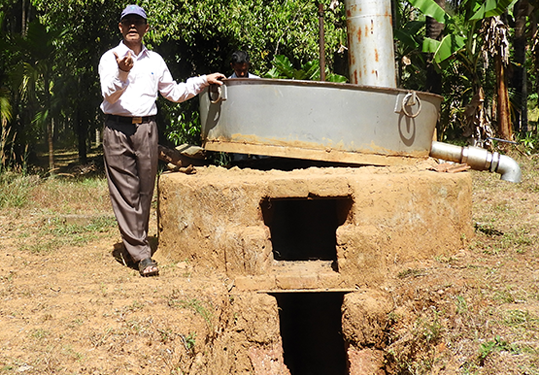The Western Ghats are known for their rich and unique diversity of forest, flora and fauna. There is a great variety of vegetation in the Western Ghats.
Our work in the Western Ghats focused on sustainable forest management and in promoting sustainable technologies for energy efficiency. Here is a brief overview of the projects and programmes implemented over the years:




Programme Highlight:
"The Centre for Sustainable Technologies has done pioneering work in the field of sanitation in rural areas. We are delighted to work with Earthwatch Institute India to promote these sanitation technologies at the grassroots and also develop skill development initiatives to train community members. The Rainwater Harvesting integrated Rural Sanitation Programme is one such initiative that uses dedicated rainwater supply for sanitation, powered by the solar photovoltaic panels and using low-carbon locally available building material. Looking forward to our continued association with Earthwatch Institute India, who are pioneering innovations in the field of water, sanitation, and hygiene with their niche in citizen science."
Professor Monto Mani, Centre for Sustainable Technologies, Indian Institute of Science IISc., Bengaluru.
Scientific Research Institution: Centre for Sustainable Technologies, Indian Institute of Science IISc., Bengaluru.
The scientists and experts who were associated with the projects and programmes, from time to time, over the years:
Professor N. H. Ravindranath, Professor Monto Mani, Mr. H. I. Somashekar, Mr. P.R. Bhat, Dr. Indu K Murthy, Dr. Gururaja K. V and
Dr. Sumanta Bagchi.